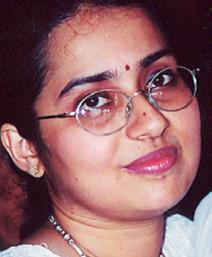
2 minute read
festivalWriters
from 2012-09 Sydney (2)
by Indian Link
Be it Aboriginal or Dalit, tribal or indigenous, the two socially rejected communities spanning two entirely different continents, have so many parallels.
but of brutality against Dalits. How can it be nice? Yet I had to write it. How could I neglect the call of my people? I did not know the structure of literature but I wanted to share the pain of my people. Words just flowed out”.
Sadly, his introduction into literary circles has been a painful one, creating social tension as well as deep personal rifts. His own community, including his family, rejected Limbale for laying bare the naked truth of Dalit life in all its ugly reality.
The soft-spoken author’s autobiography Akkarmashi (Untouchable) erupted like a volcano two decades ago.
“How could I not write? It is my birth-right to express my protest through my writings. It is my attempt to cleanse the stain on our country,” Limbale told Indian Link. “Our people’s struggle is my paper, our movement is my ink, the people are my books and my protest is my parliament”.
His writings verbalise the deep pain, the suppressed anger and wounded pride of the entire community of marginalized people.
Katha, the embodiment of fertility and biodiversity, and the freedom struggle for independent Telengana.
“We are avachas and adrushas, made by Hindus but not Hindus,” she said.
Her powerful writing has been translated into many regional dialects, besides English. My father may be an elephant, my mother only a small basket, Merit interrupted, Infected wounds are but the tip of the iceberg. An outspoken activist of Dalit rights and women’s upliftment, Shyamala has also written prolifically on the issues she is passionate about. Her simple Telugu quotations moved the audience to tears.

Akin to India’s untouchables, the story of the ‘stolen generations’ is yet another shameful chapter in human history. It is the heart-rending tale of half-castes and non-entities, of isolation and social rejection. The deep angst and anguish of these ‘half-breeds’, form the basis of Ali Cobby Eckerman’s poetry.
rejected communities spanning two entirely different continents, have so many parallels. Their writer unashamedly stated, “is the literature of drainage water. It is not the literature of imagination
It is this very anguish that is conveyed in the works of Gogu Shyamala, an advocate, women’s activist and champion of the Telengana movement in remote rural Andhra Pradesh. Shyamala who is deeply indebted to her first publisher Navayana, spoke of the matrilineal matriarchic family system of her community. Her storytelling also belongs to the protest tradition. She spoke proudly of her mother goddess
Pochamma Katha and Ellama
Australian politicians have since made botched attempts at rewriting history, but have they been able to heal the deep wounds? More importantly, have the half-hearted policies effected real social change in these sidelined communities?
I’ll dance with mob on this red Land, munda wiru place I’ll dance away them half-caste lies ‘cos I got my Nana’s face!
The well read and widely travelled Eckerman hopes to be the change agent her community needs to rally back to dignity and social acceptance.









